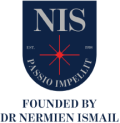SAIMUN 2016

In March 2016, several NIS high school students took part in the prestigious St. Andrew’s International Model United Nations. SAIMUN has been held every year since 1988, and has grown from a small, school-based MUN , to a well-known international conference that attracts over 700 students from 45 schools in 20 different countries from around the world.
Our students represented both Tunisia and Singapore and got actively involved in the debate from the first General Assembly. Even the first year students were applauded and commended on their contributions to the debate in general assembly and within their committees. Because of the relatively small committee size when compared with some other international conferences, our students had many opportunities to speak up and participate.
In addition to holding a mock International Court of Justice trial, the following committees were held at SAIMUN 2016:
- Disarmament
- Ecology and Environment
- ECOSOC – Economics and Social Council
- Health and Youth
- Human Rights
- Political
This year, each committee researched and debated resolutions on four topics, with special emphasis on the refugee crisis facing the world. Our students discussed the following topics in their committee s :
Ecology and Environment
- The question of over-exploitation of natural resources in South America
- The question of ocean pollution
- The question of the sustainable management of camps for displaced persons
- The question of amphibian decline
ECOSOC
- The question of the reform of the International Monetary Fund (IMF)
- The question of the economic and social repercussions in Europe and the Middle East due to the Syrian migration crisis
- The question of the patentability of life-saving vaccines and medicines
- The question of supporting farming in LEDCs by establishing minimum global prices
Health and Youth
- T he question of mental health in education.
- The question of doping in professional sport.
- The question of antimicrobial resistance.
- The question of educational provision for displaced children.
Human Rights
- The question of honour killings.
- The question of the ownership of DNA.
- The question of female genital mutilation.
- The question of the human rights of displaced persons.
Political 1
- The question of the use of private military companies (PMCs).
- The question of employing and assimilating displaced persons.
- The question of prioritising the protection of world heritage sites.
- The question of the rights and reponsonsibilities of non-state organisations regarding the use of outer space.

